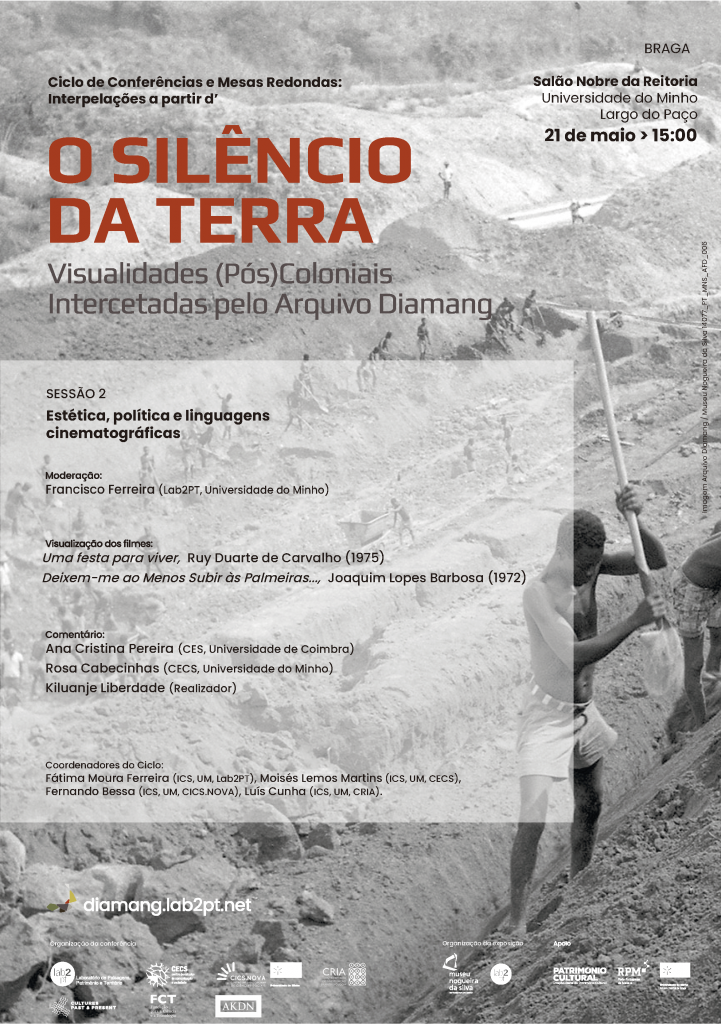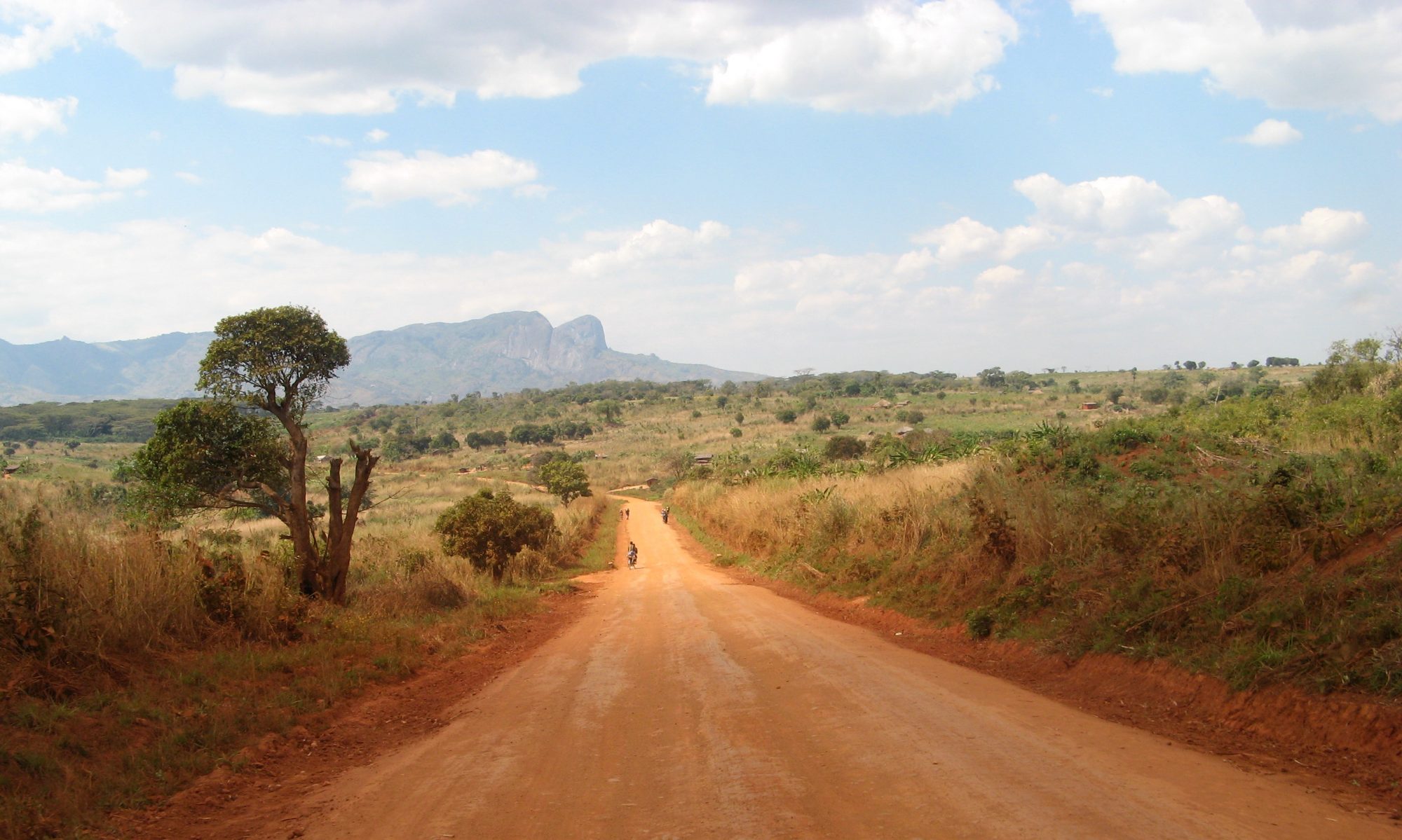The second session of the Series of Talks and Round Tables “Interpellations from the Silence of the Earth. (Post) colonial visualities intersected by the Diamang archive ”will take place next Friday, May 21, 2021, starting at 3 pm. Entitled “Aesthetics, politics and cinematographic languages I”, the session will be held in a hybrid format (face-to-face and online) and will include the participation of Ana Cristina Pereira (CES, University of Coimbra), Rosa Cabecinhas (CECS, University of Minho), researchers from the Cultures Past & Present project, and Kiluanje Liberdade (director and PhD candidate in Cultural Studies), moderated by Francisco Ferreira (Lab2PT, Universidade do Minho).
The critical itinerary of this cycle is designed under the horizon of the exhibition The Silence of the Earth. It aims to promote extended interdisciplinary questionings and reflections on the experience of late Portuguese colonialism, from the perspective of the coexistence of times or of intertwined times. The cycle comprises 7 sessions, each subordinate to a particular theme, namely: archives, speeches and languages; work: domination and resistance; race and gender; emancipatory movements; culture and interactions; cinematographic languages: aesthetics and politics (2 sessions).
The second session will take place in the Main Hall/Salão Nobre of the Rectory of the University of Minho, on Zoom and YouTube.
The debate will be held after viewing the films:
Uma festa para viver, Ruy Duarte de Carvalho, 35’, 1975 Documentário – Ruy Duarte de Carvalho
Deixem-me ao Menos Subir às Palmeiras…, 67’, 1975, Ficção – Joaquim Lopes Barbosa

Ana Cristina Pereira holds a PhD in Cultural Studies, from the University of Minho, with the thesis ‘Alteridade e identidade na ficção cinematográfica em Portugal e em Moçambique’. She has as main research interests: racism, social identity, social representations and cultural memory in cinema, from a post-colonial and intersectional perspective, on which she has edited several scientific articles in national and international publications. She has been part of the team of scientific projects and, at the moment, she is an investigator of the (THE) OTHERING project. She is a member of the Non-Governmental Organization NARP-Núcleo Antirrista de Porto.
Kiluanje Liberdade (Director)
Born in Benguela – Angola, in 1976, he lives between Braga and Luanda. Degree in Communication and Culture Sciences (2003). Postgraduate in African Studies, ISCTE (2005). Currently studying for a PhD in Cultural Studies at the University of Minho. Author of the documentary “O RAP É UMA ARMA”, First Prize for Best Documentary Work, at the Amascultura Documentary Encounters (1996). Co-author of 6 documentaries, in which “OUTROS BAIRROS” (1998), “OXALÁ CRESÇAM PITANGAS” (2004) and “LUANDA, A FÁBRICA DA MÚSICA” (2006) stand out. He was a television director for 9 years at TVZimbo (the first private television channel in Angola).
Rosa Cabecinhas is a professor in the Department of Communication Sciences at the Institute of Social Sciences and a researcher at the Center for Communication and Society Studies. She is director of the Doctoral Program in Cultural Studies at the University of Minho and coordinator of the Permanent Seminar on Communication and Diversity. She has developed interdisciplinary research and integrates several national and international associations in the areas of communication, psychology, education and cultural studies. His main research interests combine the areas of intercultural communication, social memory, social representations, social identities, social discrimination and diversity. Among her publications, the book “Black and White: The naturalization of racial discrimination” (2017, 2nd edition) stands out. ORCID: https://orcid.org/0000-0002-1491-3420
The cycle is organized by the Landscapes, Heritage and Territory Laboratory (Lab2PT), by the Center for Communication and Society Studies (CECS), by the Interdisciplinary Center for Social Sciences (CICS. NOVA.UMinho), by the Center for Research Network in Anthropology (CRIA-UMinho) and by the Cultures Past & Present Project.

